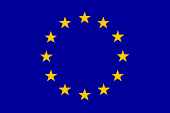FOSTER-UNESCO Open Science for Doctoral Schools
Open Science for Doctoral Schools: a joint FOSTER and UNESCO workshop

On April 23 & 24, 2015, FOSTER and UNESCO invite you to a two-day workshop at UNESCO Headquarters in Paris, for up to 20 Graduate School administrators from Engineering, Marine and Biosciences Doctoral Schools across the European Research Area, with the aim to construct a credible roadmap for including Open Science in the doctoral curriculum training, alongside training on research excellence.
For more information and updates, see the FOSTER event page. You can apply for registration using this form.
Open Science is now part of many research funders philosophy due to its core contribution to Reproducibility, Access and Re-use of research results, as well as Knowledge Transfer to the knowledge-based industry. Open Science can make meaningful contribution to institutional research strategies based on research excellence, education and innovation (and societal impact).
At individual career level, Open Science can help graduates place their research in societal context, increase the societal impact of their research (thus aligning themselves with the evolving Research Excellence Framework 2020), as well as raise research funding more competitively (http://dx.doi.org/10.5281/zenodo.12247).
Such "soft skills" can lead to hard career impact, if they are a part of the curriculum alongside research excellence. The FOSTER-UNESCO Workshop invites Doctoral School professional to construct a roadmap for making Open Science certifiable and standard training for future graduates. Brief presentations will be followed by group work on certification, institutional capacity to train graduates, potential barriers and stimulate to including Open Science in the curriculum.
A detailed Program will be confirmed soon. Presentations will include:
- UNESCO Open Access Curriculum?
- Finland's National Strategy on Open Science?
- Why graduate schools should teach Open Science by default?
- Winning Horizon 2020 with Open Science?
- Space limit: 20 participants (by invitation only!)
 Unless otherwise stated, all materials created by the FOSTER consortium are licensed under a CREATIVE COMMONS
ATTRIBUTION 4.0 INTERNATIONAL LICENSE.
Unless otherwise stated, all materials created by the FOSTER consortium are licensed under a CREATIVE COMMONS
ATTRIBUTION 4.0 INTERNATIONAL LICENSE.
 This project has received funding from the European Union’s Seventh Framework Programme for research,
technological development and demonstration under grant agreement no 612425.
This project has received funding from the European Union’s Seventh Framework Programme for research,
technological development and demonstration under grant agreement no 612425.